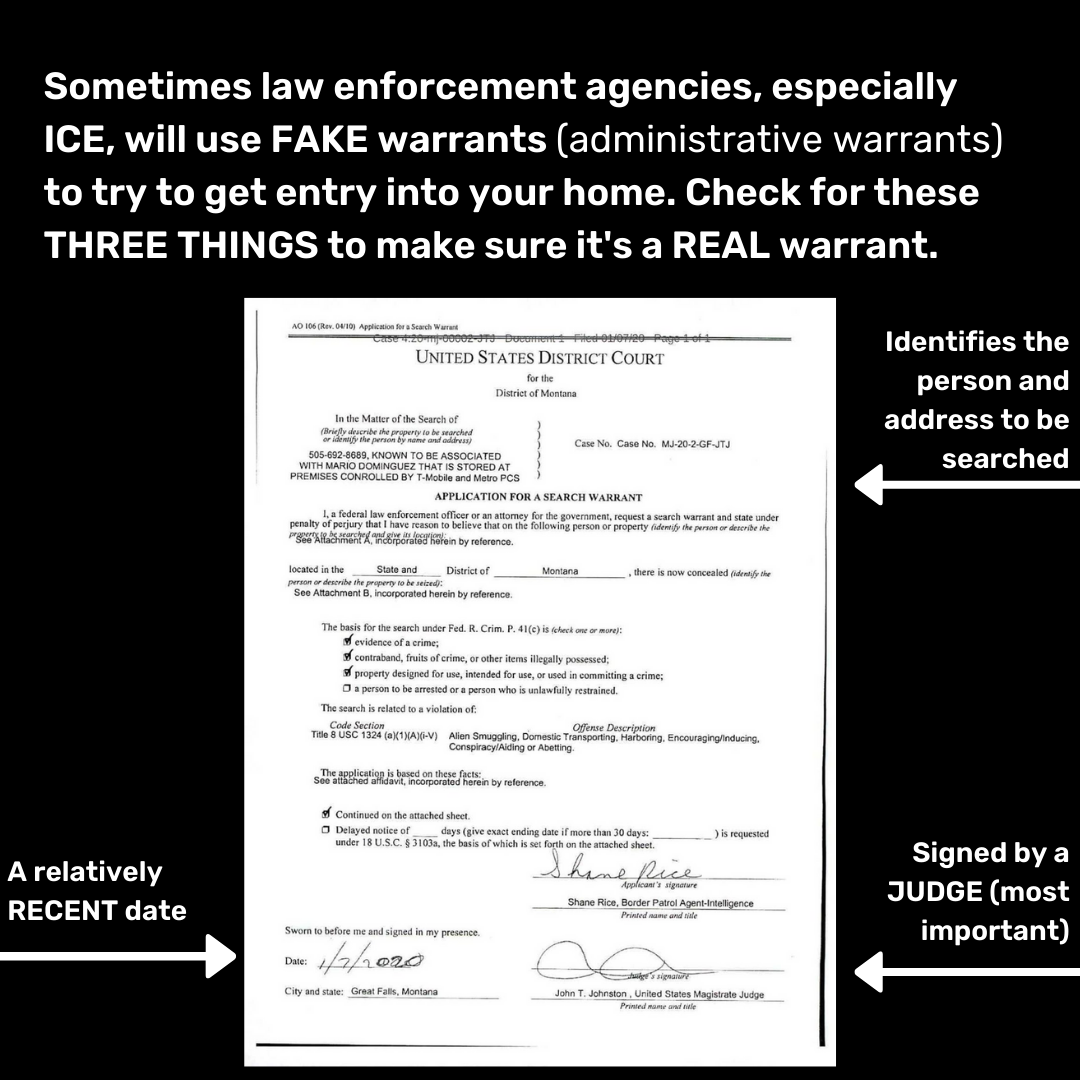As mobilizations are taking place across the U.S. in defense of Palestine at a time of heightened resistance and repression, it’s more important than ever that we have the tools and knowledge to defend ourselves and our communities. Below find basic Know Your Rights information regarding interactions with law enforcement, recommendations for attending protests, and tips to strengthen your digital security.
Know Your Rights Regarding Law Enforcement Encounters
- Don’t Talk to Law Enforcement Without Your Lawyer!
- Instead, you can say (and be prepared to repeat): I will not answer any questions without my lawyer present. Please give me your business card and my lawyer will follow up with you.
- You always have the right to refuse to talk to law enforcement, even if you are not a U.S. citizen. It’s safer to refuse to talk to them without a lawyer even if you think you have nothing to hide. They often approach people to fish for information on them, their friends, families, and broader communities. Anything you say could be used against them or yourself.
- NEVER LIE TO THEM! It is better to say nothing at all and repeat “I WILL NOT ANSWER ANY QUESTIONS WITHOUT MY LAWYER PRESENT”
- Do Not Open the Door
- If they come to your house, do not open the door. You can repeat Rule #1 (I will not answer questions without my attorney present.) and ask them to slide their business card under the door. If you feel that you have to open the door for whatever reason, do not invite them in. Step outside and close the door behind you.
- If they do have a warrant, ask them to slip it under the door. Check for the THREE below requirements that make it a valid warrant (judge’s signature, recent date signed, and an accurate identification of person/place to be searched) before opening the door. Ask them for a copy of the warrant. Call your lawyer immediately.
- Do Not Consent to Any Searches of Your Bag, Your Home, Your Car, etc.

- Instead, you can say (and be prepared to repeat): I do not consent to this search.
- Normally, police need a warrant if they want to search any of your belongings or search your house. If they approach you at home or on the street and ask to search any of your belongings, you always can and always should SAY NO!
- If they don’t have a warrant and try to search despite you saying NO, see if anyone around you can be a potential witness and tell the police firmly and clearly: “I DO NOT CONSENT TO THIS SEARCH.”
If law enforcement has contacted you or anyone you know, hit up the following organizations for legal assistance:
- CUNY CLEAR:
- cunyclear.org (718) 340-4558
- National Lawyer’s Guild:
- nlgnyc.org (212) 679-6018
Recommendations
Recommendations at Protests:
- Move as One: Stay behind the front banners as they keep our protest united and protected
- Inform security team and National Lawyers Guild observers (green hats) of any arrests and incidents. If you witness an arrest, try to ask for the arrestees name and birthday if it is safe to do so. Relay that information to the security or legal team so that we can track them down at the precinct.
- Journalists and photographers should check in with organizers prior to posting any pictures online
- Do Not Talk to the Police!
- Avoid talking about, recording, or posting anything that could get anyone in legal trouble. If you’re unsure, air on the side of caution and don’t post it.
- Write the National Lawyers Guild number on your arm prior to arriving at the protest: 212-679-6018
- Turn off all biometric passwords to your devices (Face ID, fingerprint ID) and switch to a strong alphanumeric password, especially prior to protests or traveling through airport security
- Wear a mask at all times
- Travel to and leave the action with friends
- Bring water & snacks
Digital Security Hygiene Recommendations
- To avoid being doxxed, regularly search your name on a search engine and click on results from people-search websites like Spokeo, BeenVerified, MyLife, Intelius, StateRecords, Instant Checkmate, PeekYou, and others. These websites compile publicly-available data and can reveal your name, address, family members, and other sensitive information. You can remove your information from these sites if you search, for example, “Spokeo optout” or “Spokeo remove information.” Follow the instructions that you find and remember to repeat this process regularly as new people-search websites pop up often.
- Change your passwords often
- Stick to Signal. Avoid strategizing on Instagram, Facebook, WhatsApp, etc.
- Disable Face ID, fingerprint ID, and lockscreen notifications
- Set up a password on your SIM card itself (for iPhones: Settings > Cellular > SIM Pin)
- Install HTTPS Everywhere and PrivacyBadger extensions on your browser
- Ditch Chrome and install Brave Browser, or use Tor Browser for a slower but more secure internet presence
- Stop using Google, start using DuckDuckGo
- Regularly encrypt and backup your data
- Consider using a VPN
We keep us safe before, during and after the action ends. It’s up to each one of us to protect ourselves and our communities against government harassment, surveillance, and criminal prosecution.
